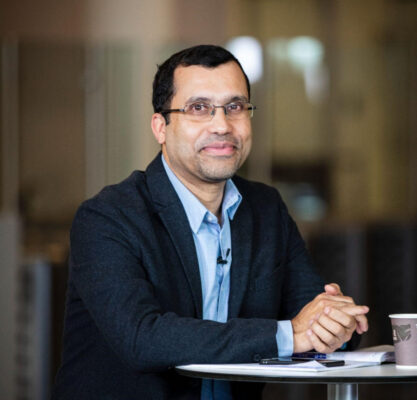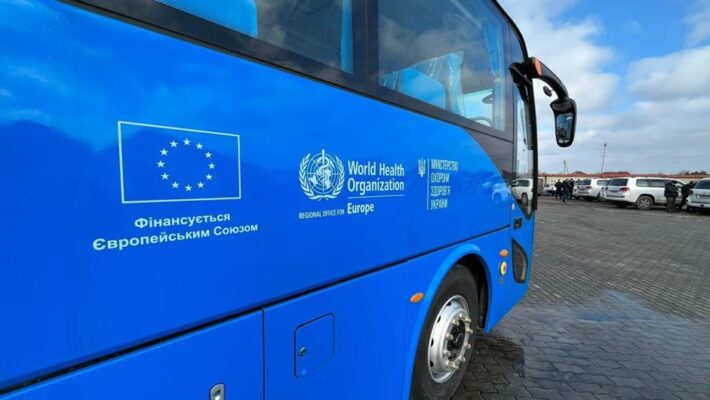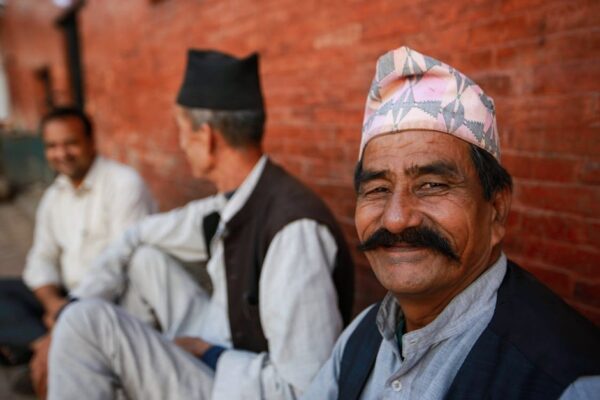Immunisation offers protection against several infectious diseases ‒ many of which are now rare, thanks to vaccines. Most families in Europe protect their children through free routine vaccination programmes. However, if too few children are vaccinated, viruses such as measles and polio can return.
Key points
- ‘Big Catch-Up’ aims to identify and connect with those who missed vaccination
- Serbia, Tajikistan, Türkiye and Russian Federation are among 18 European countries reporting measles cases
- Ukraine is stepping up disease surveillance and immunisation efforts
- Micro-influencers to play a key role in supporting local-level vaccination campaigns against the ever-present threat of vaccine-preventable diseases
Disruption to global vaccination programmes in the early phase of the COVID-19 pandemic sparked concerns about children missing out on vaccines. In some countries, services were temporarily paused, social restrictions were introduced, and families hesitated to bring infants for vaccination. Europe recorded a 1% decline in routine vaccination in the first year of the pandemic.
That backsliding has partially been arrested. However, while average vaccination rates for the Region as a whole are now close to pre-pandemic levels, there are countries, regions and communities where local vaccine uptake remains very low.
In an interview with Vaccines Today to mark European Immunization Week (23-29 April), Dr Siddhartha Datta, Regional Advisor for Vaccine-preventable Diseases and Immunization, at the WHO Regional Office for Europe, says it will take time to restore ‒ and exceed ‒ pre-pandemic levels of immunisation.

‘In 2020, the European Region slipped backwards, but in 2021, the region as a whole prevented further backsliding,’ he says. ‘But it’s not all rosy. If you look at the data country by country and, in particular, at sub-national levels, there is a lot of variation. In some regions, between 5% and 15% of children have missed routine doses.’
Dr Datta emphasises that restoring 2019-levels of vaccination is important, but the goal should be to go beyond this. ‘It’s not that everything suddenly went wrong in 2020: there were countries in the region already below the 95% target for measles vaccination, long before the COVID-19 pandemic began.’
Immunisation programmes have long been victims of their own success. When coverage is high, rates of disease are generally low, even for highly contagious viruses such as measles. ‘We shouldn’t take this for granted,’ Dr Datta says. ‘If we don’t catch-up children who have missed out on vaccination, we will see the old scourge of measles coming back.’
The WHO Regional Office for Europe has been encouraging its 53 member countries to invest in catch-up immunisation programmes as a means of protecting health systems from future outbreaks of disease. Provisional data already hints at rising rates of measles, heightening concerns that the disease could spread quickly in undervaccinated communities. ‘Last year, over 900 measles cases were reported in the European region over a 12-month period. That number was already exceeded in the first two months of 2023. This year may be a big year for measles.’
The good news is that scientists, doctors ‒ and parents and families ‒ know how to stop outbreaks in their tracks. For example, Serbia has launched local interventions to stem the spread of measles, including vaccination, disease surveillance and infection control measures. The country, which reported thousands of cases between 2017 and 2019, is dealing with a smaller number of cases this year but the outbreak has the potential to grow quickly.
Meanwhile, in response to measles outbreaks in 2022 and 2023, Tajikistan has identified districts with high numbers of cases and prioritised them for vaccination. ‘Authorities have achieved coverage of 99% in these areas, confirmed by independent monitoring, which showed big drop in cases in the intervention districts,’ Dr Datta says.
The outbreak in Tajikistan has already spilled over into the Russian Federation. ‘If health systems are not reaching children with measles vaccines, the virus will definitely show you where the gaps are.’
Data from across Europe indicates measles outbreaks in 18 countries in 2023. ‘We anticipated this and we now need to do more than we have done in the past,’ Dr Datta says. ‘The size of the vulnerable population is much higher in 2023 than it was a few years ago. The population, politicians, civil society and others must get behind The Big Catch-Up to address the backlog of unvaccinated and undervaccinated individuals. We cannot afford to allow vaccine-preventable diseases to put additional pressure on health systems which are already stretched.’
Protecting Ukraine against disease outbreaks
Measles is also a concern in Ukraine where 8 million people have been displaced since the war began in February 2022. Experts from the WHO, including Dr Datta, have visited the war-ravaged country in recent months to support officials in protecting the Ukrainian population through vaccination and disease surveillance. The government is now planning a measles catch-up campaign for children under five who missed out on vaccination due to the pandemic or the war.
However, measles is not the only issue. Even before the war, Ukraine was dealing with cases of vaccine-derived polio. Dr Datta’s visit to Kiev, Zhytomir and Chernihiv included a detailed discussion on enhancing disease surveillance. ‘Investing in disease surveillance is one of the smartest moves a government can make,’ Dr Datta says. Ukraine has moved from the traditional approach of monitoring for cases of acute flaccid paralysis (which can be caused by poliovirus) to waste-water surveillance in which scientists test sewage samples for the virus itself.

‘Both measles and polio are very much a public health priority for the Ministry of Health in Ukraine, despite all the challenges they face,’ Dr Datta says. ‘We are very glad that the government has prioritised domestic funding for immunisation, even at this exceptionally difficult time.’
There is also strong demand from the population to keep their children safe from vaccine-preventable diseases ‒ giving families something they can control in the face of the physical threats brought by war, against which they feel powerless to protect their children. ‘Families are coming to health centres as they value vaccines as an instrument that can keep them safe,’ Dr Datta says. ‘The government is ensuring that primary health care services have vaccines available to meet public demand.’
The WHO is working with the Ukrainian government to support prevention campaigns, which may include locating mobile vaccine clinics next to bomb shelters where families and health workers seek refuge from aerial bombardment.
Mobilising micro-influencers
Containing outbreaks of vaccine-preventable diseases in Ukraine and neighbouring countries is just one of the many complex challenges facing the European Region. The WHO Regional Office for Europe is using European Immunization Week to put the spotlight on the need for a sustained effort to harness the power of vaccines for public health.

Along with engaging national and regional health authorities, there is also a new focus: micro-influencers. ‘Reaching the population through local influencers is critical,’ Dr Datta says. ‘Micro-influencers, whether they are a local pharmacist or a persuasive grandmother, will be a feature of our work. We have learned from the COVID-19 experience of Portugal, where micro-influencers have had a macro impact.’
Engaging with local leaders is key to mounting a sustained response to an ever-present threat. That’s why Dr Datta believes they are key to long-term success. ‘This European Immunization Week is not a one-off event. Our work must continue all year to keep up momentum,’ he says. ‘Everybody can be a vaccine hero, yet no single person can do it all. We must all play our role.’




